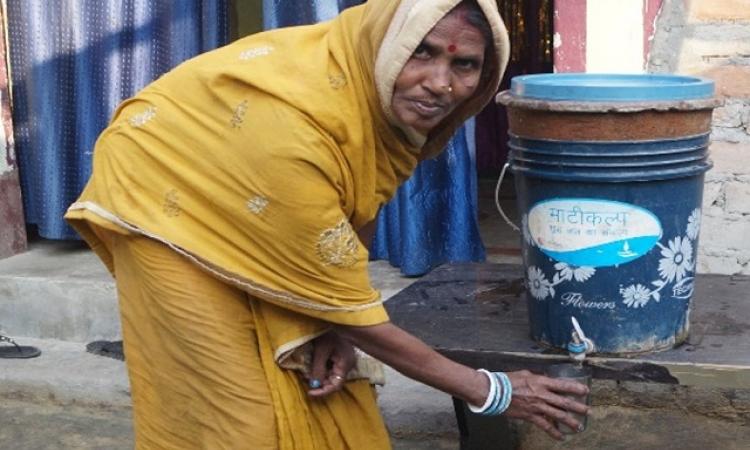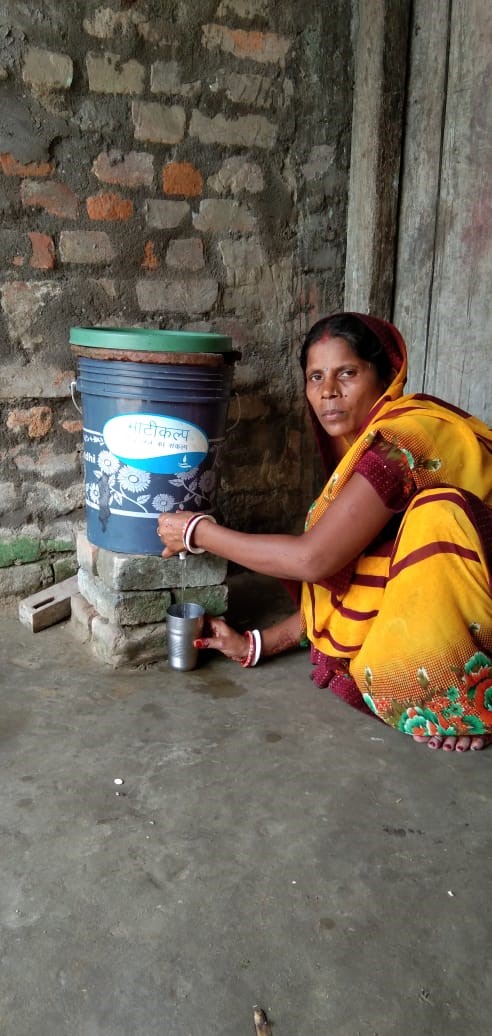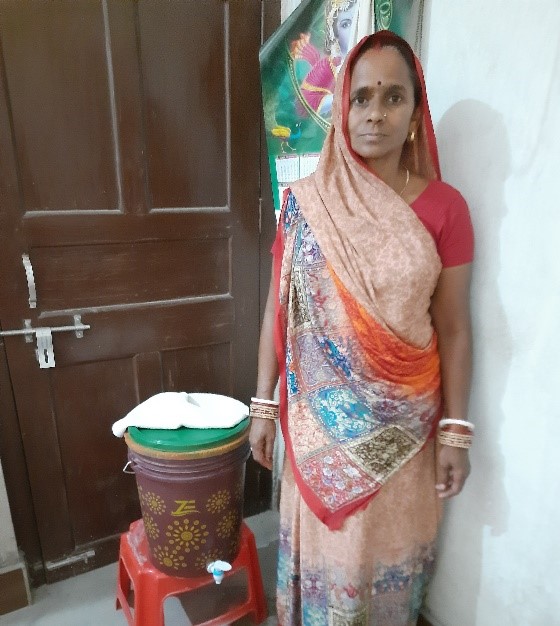
Poor consequences of unsafe drinking water and not following WASH behaviours are well documented. According to the World Health Organisation 1.7 billion cases of childhood diarrhoea occur globally every year.
Against this backdrop, Sehgal Foundation in partnership with Centre for Affordable Water and Sanitation Technology (CAWST), Canada, is working on a pilot project named “WASH for Healthy Homes” in Vaishali district of Bihar, where having safe water is the biggest challenge for the most vulnerable, poorest of the poor daily wage labourers.
Poisoned waters of North Bihar
Vaishali district lies in the middle Ganga plain of North Bihar, which has a high prevalence of arsenic, iron, and microbiological contamination of groundwater. Majority of the population residing here is rural and economically poor. Lack of awareness, knowledge, and poor availability of alternative water sources leads people to consume contaminated water.
Improving access to safe drinking water
The project aims to change this situation and the poor WASH behaviour of the community by providing access to safe drinking water through the adoption of a low-cost water filter, MatiKalp, which is a type of ceramic pot filter. This low-cost water treatment technology removes microbial contamination and turbidity and improves water quality at household level to help abate the prevalence of microbial and iron contamination that causes gastrointestinal problems.
Sensitisation and awareness-building on WASH behaviors are integral parts of the project in household clusters selected on the basis of economic level. The people are sensitised about need and benefits of safe drinking water and good hygiene practices.
To make the MatiKalp water filter locally available, potters in the area were approached who were losing their livelihoods and gradually moving away from their artistic craft due to lifestyle changes. They were trained to produce the ceramic MatiKalp and supported with the infrastructure required for production and skill building to become entrepreneurs.
MatiKalp water filters user experiences indicate that this low-cost technology is greatly helping people to overcome the problems they face due to contaminated water consumption:
Parmila Devi from Kailachak village has been using MatiKalp for more than a year. Her source water has high concentrations of arsenic, iron, and microbiological contamination. Since she adopted the MatiKalp, she reports no gastrointestinal issues. The tests of filtered water for microbial, arsenic, and iron concentration were found safe.

During the household survey and water testing in the area, Meena Devi, from Lakhanpur Lal village, found arsenic (75 ppb) and iron (3 PPM) contamination in the drinking water. When she came to know about the adverse effects of arsenic and iron on health, she bought the MatiKalp filter. Since then, she has been relieved from gastrointestinal ailments. She now strongly advocates the use of Matikalp for water treatment in her community.
Anita Devi of Khoska Kalyan village concerned about iron contamination of water after the color change that she noticed in their drinking water after it was stored for some time. In the sensitisation session organised as a part of the project, she came to know about the MatiKalp water filter and decided to buy one. She had been suffering from acute gastrointestinal pain and diarrhea. The MatiKalp filter helped in reduction of health issues and reduced the money spent by the family on doctors and medicines.

A small behavior change can create the great effect on the society. These women are the change makers in their areas. They adopted a new practice and are now creating awareness among others to follow simple practices for safe drinking water.
This article is a part of a series of articles on drinking water quality in collaboration with S. M. Sehgal Foundation, India and CAWST, Canada.
S M Sehgal Foundation addresses the most critical needs for water security, food security and community partnership and operates across ten states, in over 1,000 villages so far, reaching more than 2.5 million people. Through the water management program, the foundation encourages communities to harvest and store rainwater for direct use and/or replenish groundwater and surface water by building and restoring infrastructure in villages. Promoting safe drinking water through low cost household water treatment and storage in an important initiative towards SDG 6.
Centre for Affordable Water and Sanitation Technology (CAWST) is a Canadian charity and licensed engineering firm. CAWST addresses the global need for safe drinking water and sanitation by building local knowledge and skills on household solutions people can implement themselves.
To learn more, please contact: smsf@smsfoundation.org OR lalit.sharma@smsfoundation.org
/articles/matikalp-low-cost-solution-safe-drinking-water